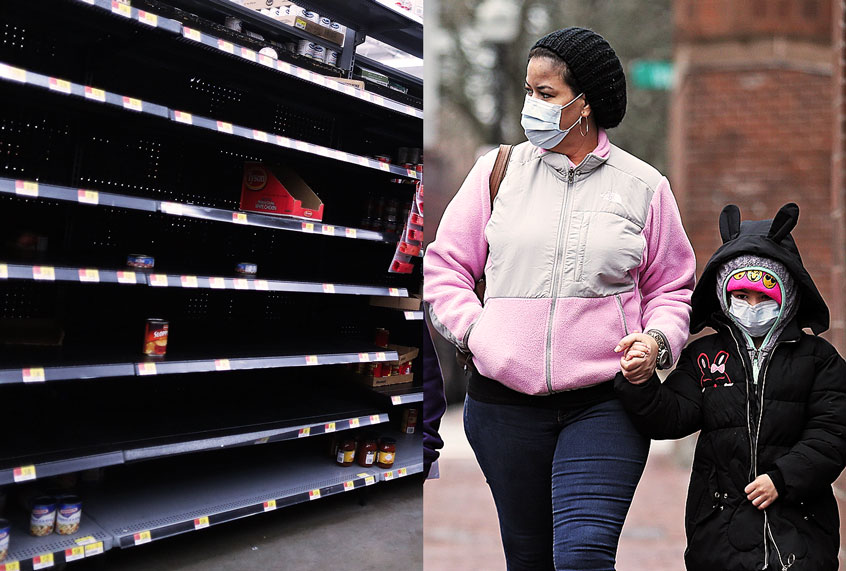I had to choose between baby formula and buying chicken — Tkeyah from Alabama
COVID-19 threatens millions of people in the United States. The ability to cope with this crisis will vary enormously across regions and communities. For some, the economic fallout is new. For others, it is an amplification of long-standing economic challenges, including low pay, scarce benefits, discrimination, unaffordable basic needs and overall insufficient public investment in programs that provide economic stability. Either way, inequities and minimal public protections leading up to COVID-19 have left families with difficult financial and safety choices — gas for the car versus food for the table, health versus job, or even the unfathomable decision of prioritizing resources to one child over another. We are all facing hard choices, but for too many families these choices are impossible.
Nowhere do we see this more than in the South. The region has a long tradition of challenges: the highest poverty rates, highest uninsured rates, smallest investments in public welfare and largest number of shuttered hospitals. COVID-19 only added to those stresses.
As Congress begins work on the fourth COVID-19 stimulus package, voices from the South’s leaders and workers are essential. We urge legislators to listen and take swift action.
The experiences of SNAP (food stamp) recipients coping with the coronavirus pandemic are dire. Survey responses from about 1,000 people who use the Fresh EBT app to manage their SNAP benefits show the depth of crisis for those living below the federal poverty line (about $20,000 for a family or three).
The risk of running completely out of food and resources is imminent. About three out of four respondents were barely or not at all able to stock food and supplies in preparation for the crisis. Seventy percent reported food insecurity directly related to the pandemic, including skipping meals, and 60% reported having only one to two days’ worth of cash on hand.
Six out of seven workers shared that they have lost earnings due to COVID-19. More than a third of respondents have lost their jobs completely, and more than 60% report losing all sources of income. A disproportionate share of job loss reported on the survey was from African American workers. Less than half of those reporting job loss have successfully applied for unemployment insurance — further, the survey found that black workers were just as likely to have applied for UI but white workers were more likely to have received a determination letter.
The prior stimulus packages rightfully pushed federal dollars out to as many as possible. It enabled flexibilities for food programs and strengthened unemployment protections. Those interventions are important and laudable.
However, the stimulus is not reaching everyone nor is it large enough to meet ongoing needs. Economic impact payments that rely on past IRS filings will not reach those who have not filed. Less than half of Fresh EBT survey respondents are positioned to receive the stimulus payments without risk of complications and, without intervention, many will miss out completely.
So what can we do? We urge leaders to consider additional avenues for practical relief for the most vulnerable communities and additional state support to remove administrative barriers. At the federal level, we require increased SNAP benefits across the board to help families and local economies. We need stimulus that actually reaches the intended, whether through existing methods such as EBT cards or new systems. Ultimately, comprehensive long-term structural reform will be required.
States should act now promoting access to important systems like unemployment insurance, child care, nutrition assistance and housing aid. In some cases, access means new policies and expanded resources, but it also means ensuring systems are customer-friendly and work as intended. States have made decades worth of changes over a few weeks, and they need more support. Websites are crashing, phone lines are hanging up on people, and individuals tell stories about setting alarms for 3 a.m. in hopes that they can get through in the middle of night. Current technology systems are not prepared to handle this level of demand. Families are facing so many pressures right now, they deserve to focus on caring for children, eating meals together and even looking for work — not fighting with a phone line or hitting refresh on a website. Access matters.
Accurate information matters too. Seventy percent of Fresh EBT survey respondents who have lost work said they didn’t apply for unemployment insurance because they didn’t think they were eligible. Outreach through every medium available, in multiple languages, is a critical component to ensuring families know and can access these resources.
Our organizations want to lift up the economic experiences of those who are most vulnerable to this shock. We encourage leaders to listen to those voices, hear about the barriers they are experiencing, and design accessible programs and policies to meet their needs now.

